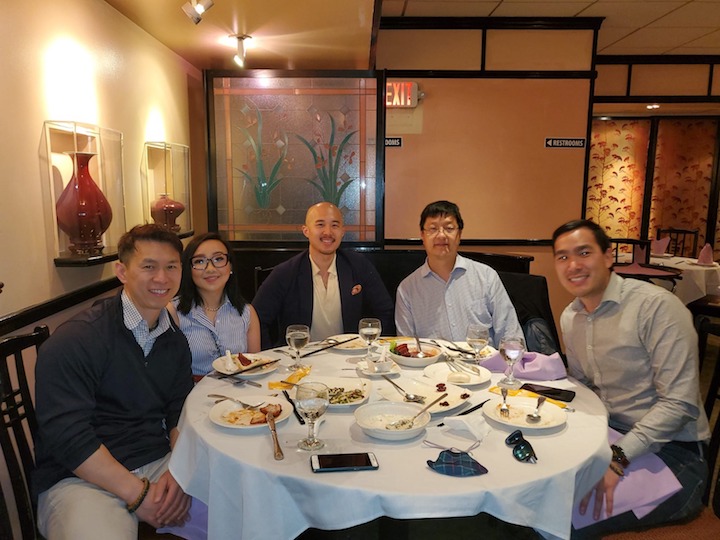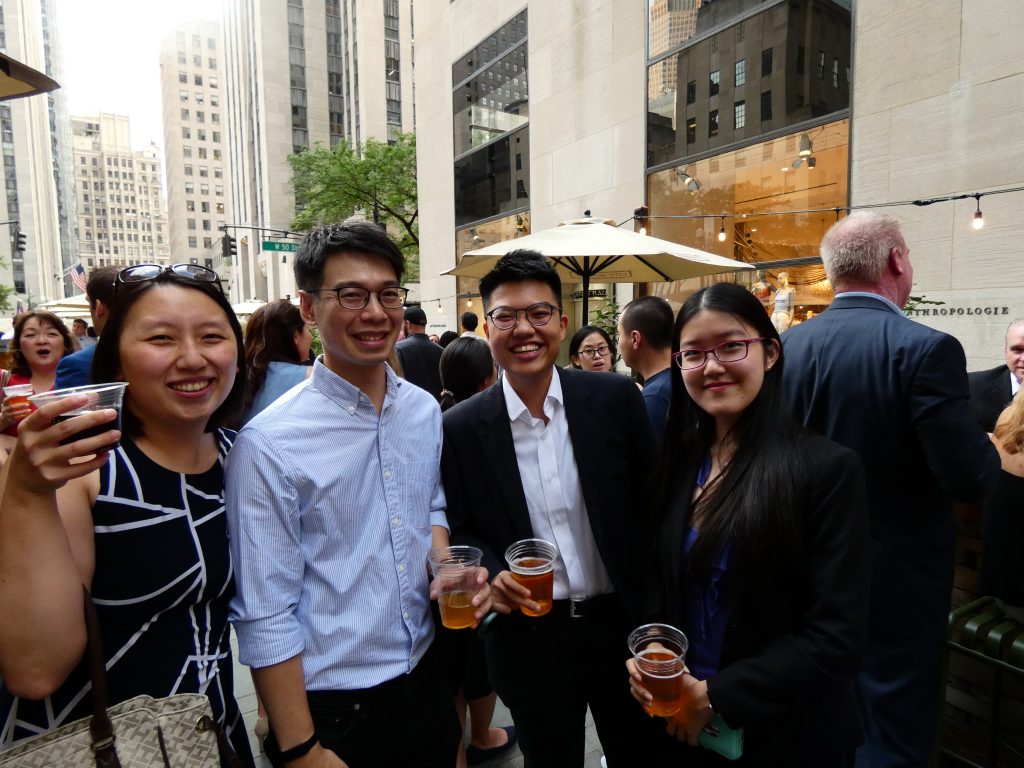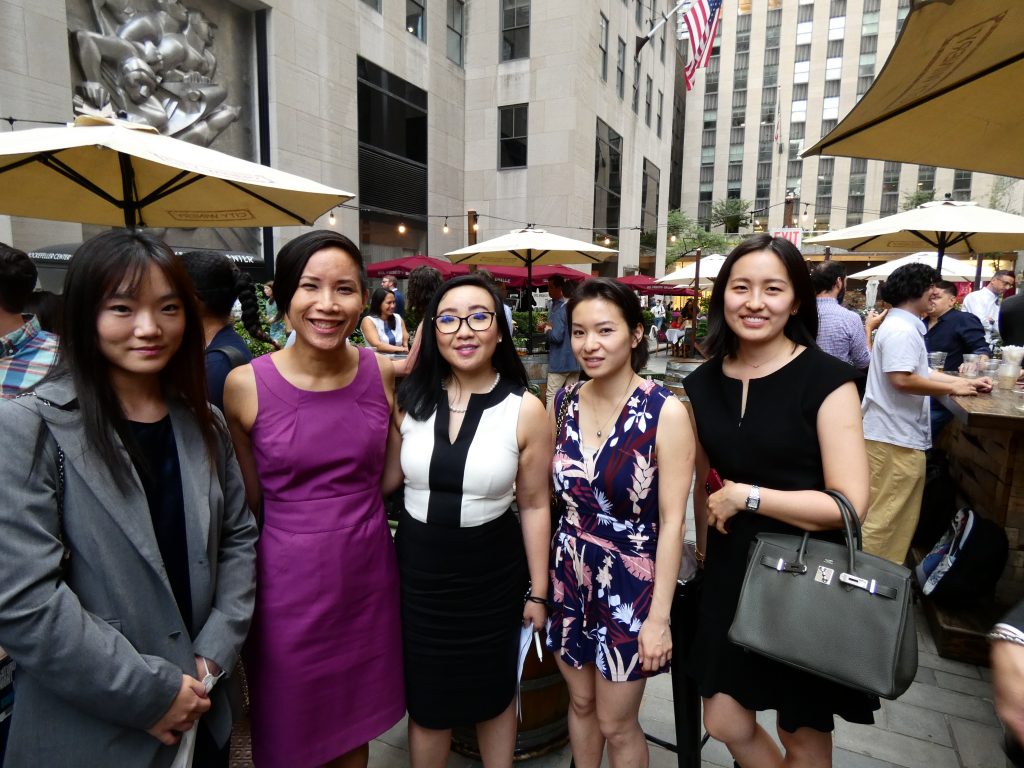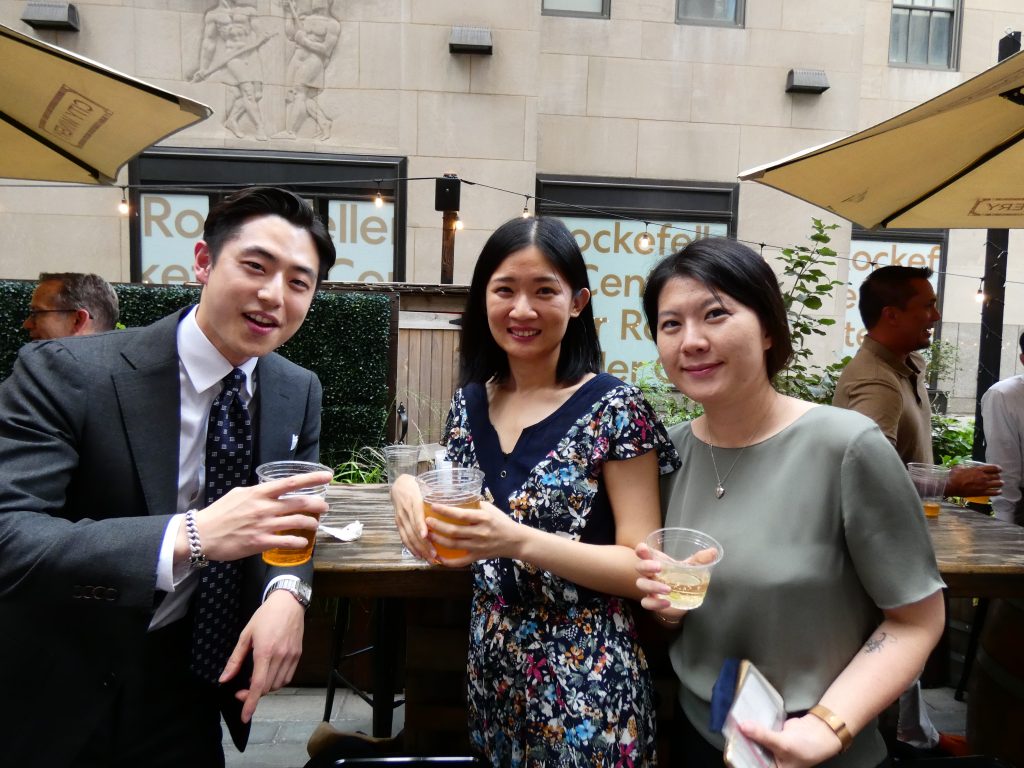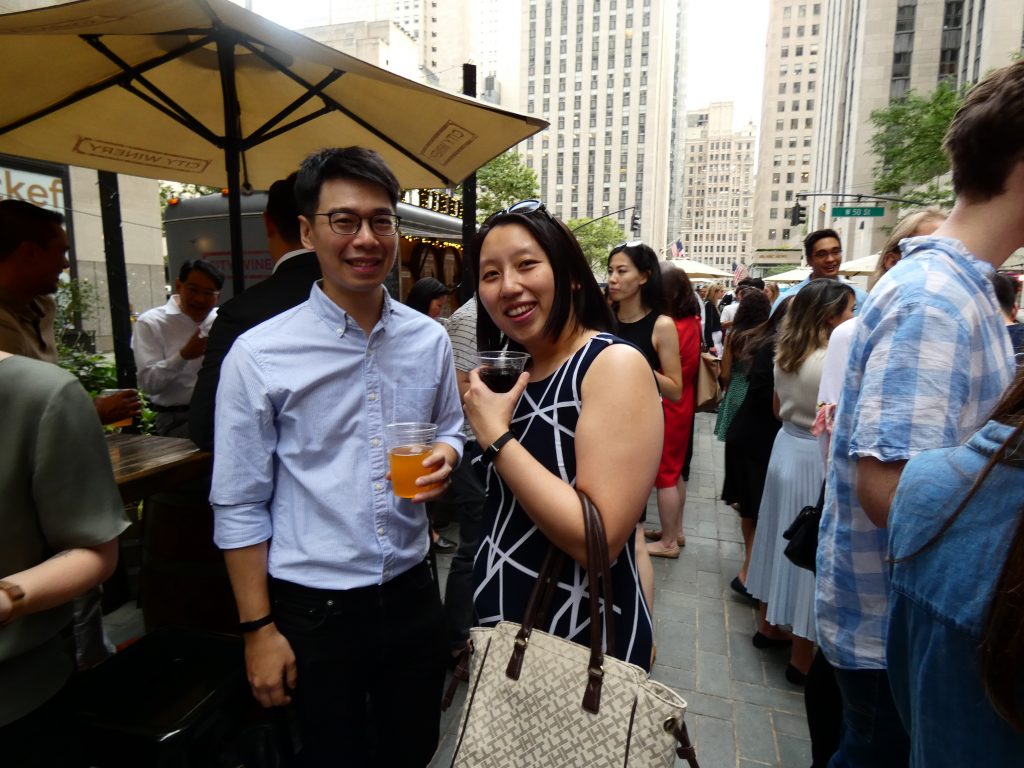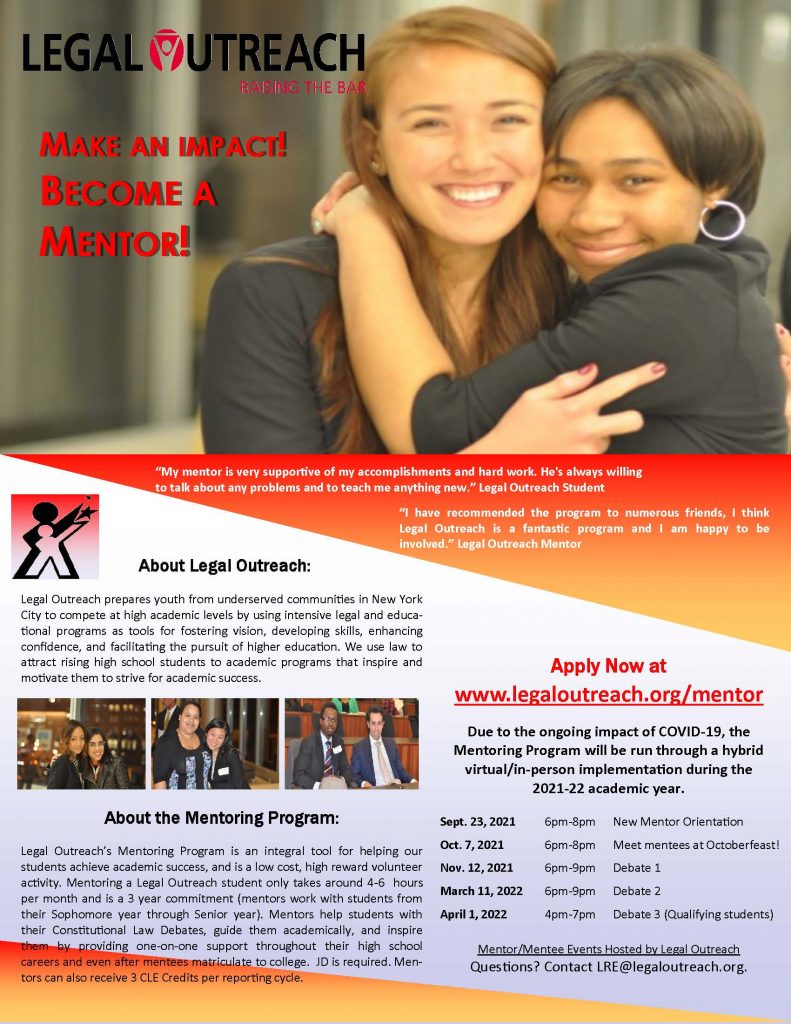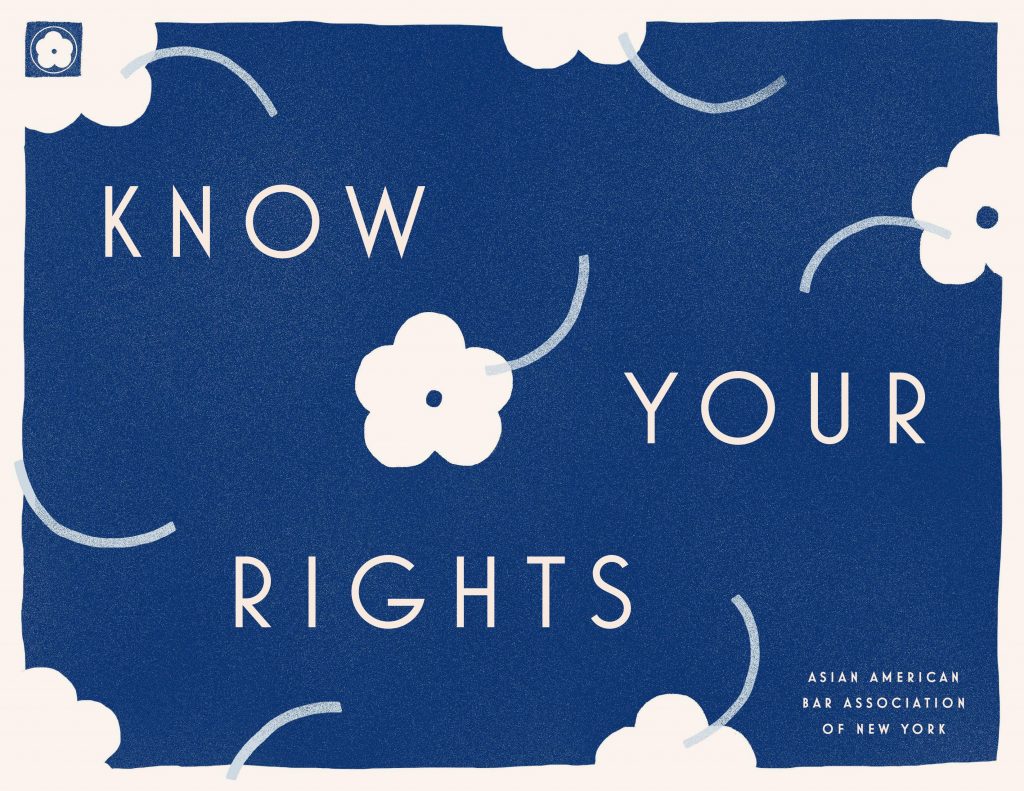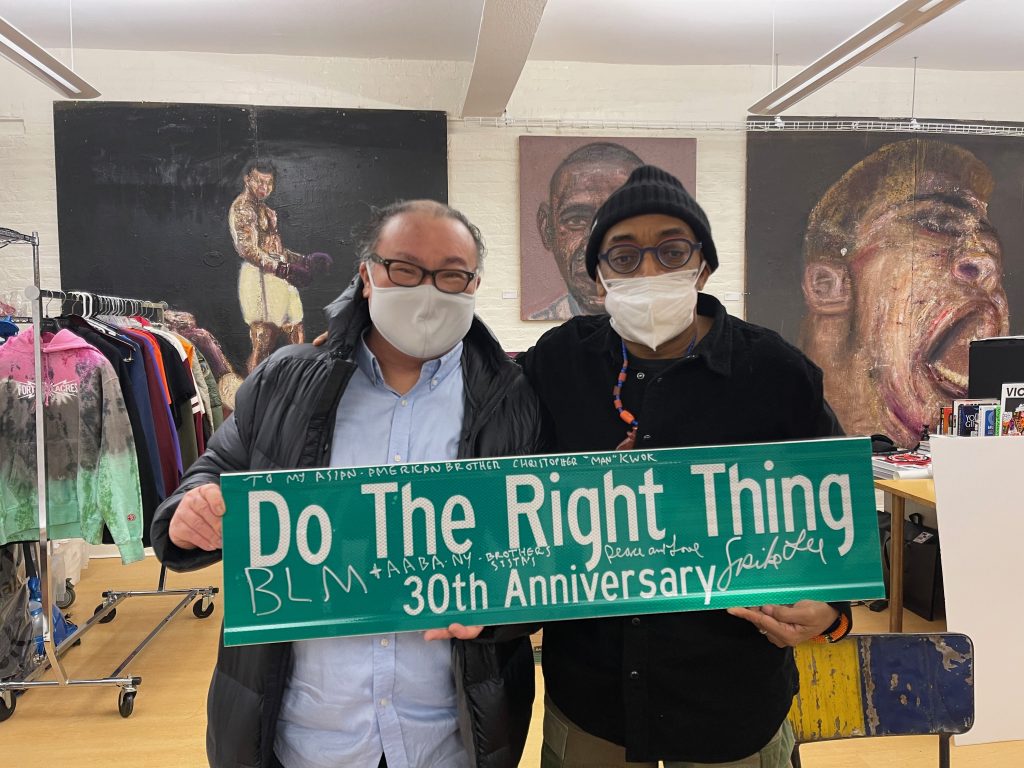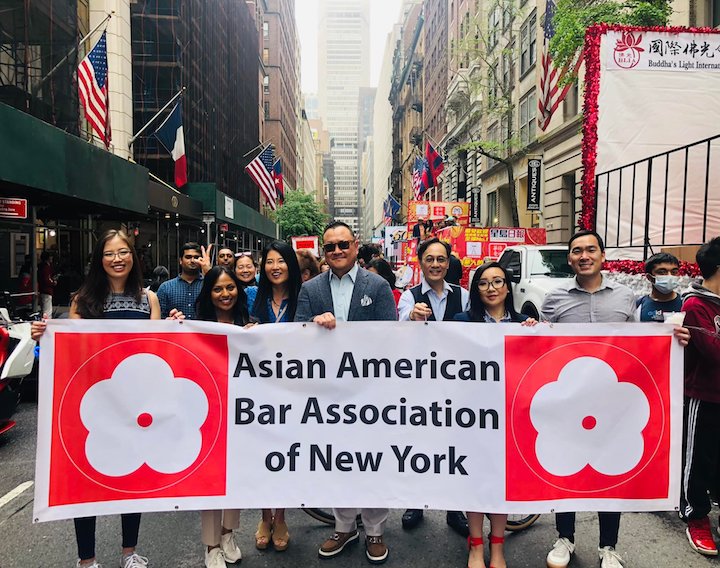
On Sunday, May 15, 2022 New York City held its first ever AAPI Cultural and Heritage Parade.
As soon as AABANY Co-VP of Programs and Operations Beatrice Leong learned about this inaugural event, she leaped into action to make sure that AABANY members and friends can march up Sixth Ave to represent our bar association. Several email blasts and social media posts went out inviting people to join us at the parade line-up on Sunday morning.
The day started with foggy conditions, and AABANY was among the first groups on West 44th Street between Fifth and Sixth Avenue. We found a good spot to gather on the street, right between the Iroquois Hotel and the New York City Bar Association building. Over the next two hours, the block filled with numerous groups and associations representing a wide array of AAPI organizations and cultures. On our left were brightly colored floats, and on our right were fancy buggies that transported VIPs. Everyone was growing impatient to start marching. Shortly after 12 noon, we started to see floats moving forward onto Sixth Avenue, followed by the community groups and organizations. When AABANY turned down the Avenue of Americas, the sun came out and shined brightly.
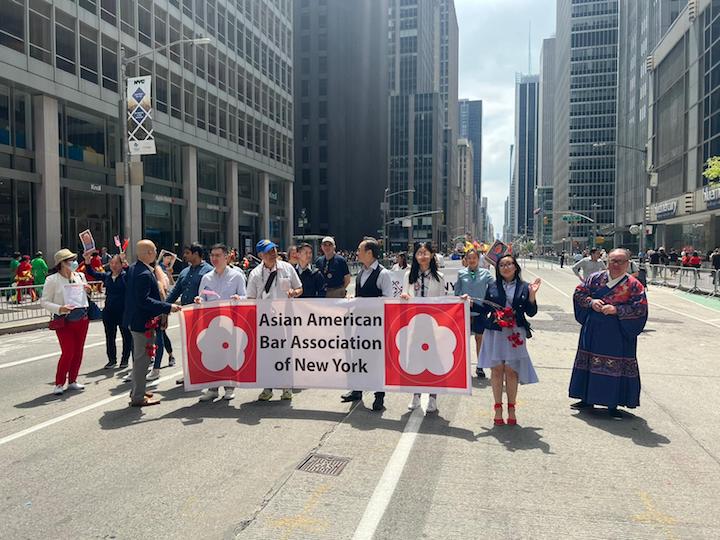
Everyone was happy to be part of this historic parade, which we hope will grow as big as the Thanksgiving Day parade in the future.
After the parade, members enjoyed a sumptuous meal at Tang Pavilion.
We thank member Lord Chester So for helping us obtain a banner on short notice!
We thank the following AABANY Members for joining and marching with us!
Founder, Rocky Chin
Hon. Vidya Pappachan
Executer Director Yang Chen
Co- Vice President of Programming and Operations, Beatrice Leong
Board Director Chris Kwok
Pro Bono Committee Co-Chairs: Eugene Kim and May Wong
Pro Bono Committee Vice Chair: Johnny Thach
GSPI Committee Chair: Kevin Hsi
Women’s Committee Co-Chair: Wen Zhang
Susan Shin, past AABANY President (2016) and her husband Rob
Lord Chester So
Priya Vanessa Outar
Jennifer Park
Grace Vee
Gary Yeung
Amelia Rusli
Xuanyou Chen
Marjorie Tsang
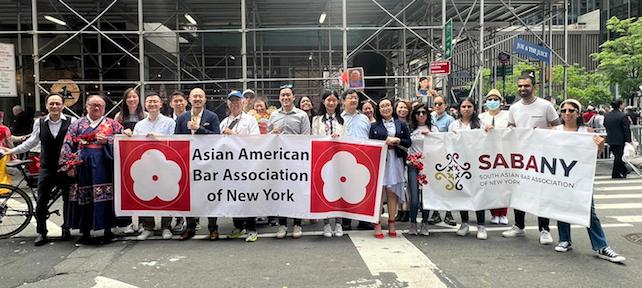
We were pleased to be joined by our friends at SABANY including SABANY President Austin D’Souza.
Thanks to everyone who helped make history with AABANY at this first Annual AAPI Heritage and Culture Parade!
